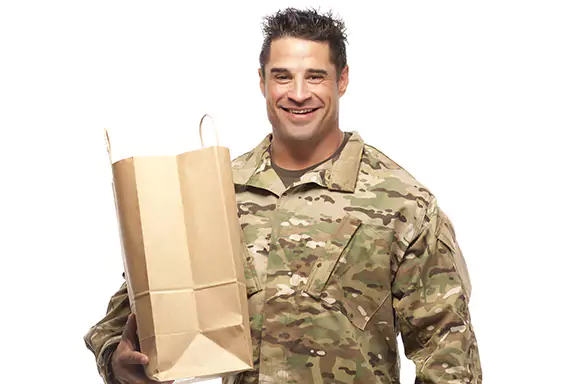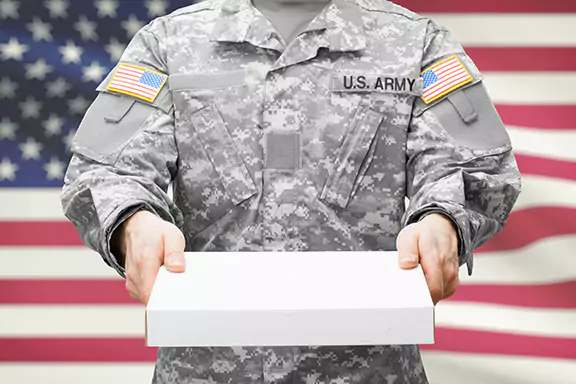As a veteran, you’ve served our country with dedication and courage. Now, it’s our turn to ensure you have the support and social services you need, especially when it comes to food security. Many veterans face challenges accessing enough nutritious food, but there are resources and programs available to help.
We’ll cover various food assistance programs designed specifically for veterans, how to apply for these benefits, and additional resources that can improve your quality of life.
Food Assistance Programs for Veterans
If you’re facing food insecurity, there are several food assistance programs available to help you and your family members get the nutritious food you need.
Supplemental Nutrition Assistance Program (SNAP)
SNAP is a federal program that provides financial assistance to help you buy food. If you’re eligible, SNAP benefits can make a significant difference in your monthly food budget.
Overview of SNAP and Its Benefits
SNAP benefits are provided on an EBT card, which works like a debit card. You can use it to purchase groceries at participating stores.
SNAP can help you buy fresh fruits and vegetables, meat, dairy products, and other nutritious foods.
Eligibility Criteria for Veterans
Income Limits: To qualify, your net monthly income must be at or below 100% of the federal poverty line. For example, a two-member household might qualify with a net monthly income of $1,644 or less.
Assets: Your assets must amount to $4,250 or less. Some assets, like your home and certain vehicles, may not count towards this limit.
Special Rules: If you’re over 60 or have a disability, special eligibility rules apply. For instance, any combat pay, hostile fire pay, or imminent danger pay you receive doesn’t count as income.
How to Apply for SNAP Benefits
Local SNAP Office: Contact your local SNAP office to begin the application process. They can provide you with the necessary forms and help you understand the eligibility requirements.
Online: Some states allow you to apply for SNAP benefits online.
Food Banks and Pantries
Food banks and pantries provide emergency food assistance to those in need. Many veterans and service members and their families rely on these resources to ensure they have enough to eat.
How to Access Food Banks
Finding Food Banks: You can find local food banks through Feeding America’s network at www.feedingamerica.org. Simply enter your ZIP code to locate the nearest food bank or pantry.
Services Provided: Food banks offer free groceries, prepared meals, and other food resources. Some even provide special programs for veterans and military families.
Non-Profit Organizations and Community Resources
Several non-profit organizations provide food assistance specifically for veterans. These organizations understand your unique challenges and are dedicated to helping you.
Operation Homefront: This organization offers food assistance and other support services to military families. Learn more at www.operationhomefront.org.
United Way: United Way offers various food assistance programs and can connect you with local resources. Visit www.unitedway.org for more information.
Specialized Food Assistance for Veterans with Disabilities and Older Veterans
If you are an older veteran or a veteran with disabilities, you may face additional challenges in accessing food. Fortunately, there are specialized programs designed to meet your unique needs.
Unique Challenges Faced by Veterans with Disabilities and Older Veterans
Limited Mobility: Physical disabilities can make it difficult to travel to grocery stores or food banks.
Health Issues: Chronic health conditions may require special diets that can be more expensive.
Fixed Incomes: Many older veterans and veterans with disabilities live on fixed incomes, making it harder to afford nutritious food.
Programs and Resources Tailored to These Groups
VA Aid and Attendance Benefit: This benefit provides additional financial assistance to veterans who need help with daily activities, including food costs. For more information, visit www.va.gov/pension/aid-attendance-housebound.
Meals on Wheels: This program delivers nutritious meals to homebound seniors, including veterans. It ensures you receive regular, healthy meals without needing to leave your home. Find local programs at www.mealsonwheelsamerica.org.
How to Apply for These Specialized Food Assistance Programs
VA Aid and Attendance Benefit: To apply, you will need to complete the VA Form 21-2680 and submit it to your local VA Pension Management Center. You can get assistance from a VA representative or a Veterans Service Organization (VSO) to help with the application process.
Meals on Wheels: Contact your local Meals on Wheels program to find out about eligibility and how to sign up. They will typically ask for basic inform
ation about your age, health status, and living situation.

Additional Resources for Veterans Facing Food Insecurity
As a veteran facing food insecurity, it’s important to know that there are additional resources available to support you beyond food stamps and assistance programs. These resources can help stabilize your situation and improve your overall well-being.
Housing Assistance
Stable housing is crucial for food security. Without a safe and stable place to live, it’s hard to focus on anything else, including getting enough nutritious food.
Programs That Provide Housing Support to Veterans
HUD-VASH (VA Supportive Housing): This program provides housing vouchers and support services to homeless veterans. It’s a partnership between the Department of Housing and Urban Development (HUD) and the VA. Learn more at www.va.gov/homeless/hud-vash.
Supportive Services for Veteran Families (SSVF): SSVF helps low-income veterans and their families who are homeless or at risk of becoming homeless. The program provides case management and assistance in obtaining VA benefits and other public benefits, including housing. Visit www.va.gov/homeless/ssvf.asp for more information.
Healthcare and Financial Assistance
Access to healthcare and financial support can also alleviate food insecurity. These services can help you manage medical expenses and provide financial stability, making it easier to afford food.
Medical Programs and Financial Resources Available to Veterans
Veterans Health Administration (VHA): The VHA provides comprehensive healthcare services to eligible veterans. By utilizing VA healthcare, you can reduce medical expenses, leaving more money available for food. Learn more at www.va.gov/health-care.
Social Security Disability Insurance (SSDI) and Supplemental Security Income (SSI): If you have a disability, you may be eligible for SSDI or SSI. These programs provide financial assistance to help cover living expenses, including food. Visit www.ssa.gov/benefits/disability for more information.
EASY Wireless Offer for Veterans
If you qualify for SNAP benefits, you can also take advantage of FREE Cell Phone Service from EASY Wireless (a veteran-owned company) through the federal Lifeline program. This program provides free cell phone and data services to eligible individuals, helping you stay connected and access essential services.
Eligibility for Free Cell Phone and Data Services
If you participate in programs like SNAP (Supplemental Nutrition Assistance Program), Medicaid or other government assistance programs or by your income level you likely qualify for the Lifeline program.
The application process is straightforward, and the benefits can make a significant difference in managing your daily life.
Benefits of EASY Wireless Services
Access to Apps: Use apps to manage SNAP benefits, find food assistance programs, and stay informed about local resources.
Reducing Costs: Save money on phone bills, allowing more funds to be allocated to food and other necessities.
Staying Connected: Reliable communication is crucial for arranging rides, receiving important updates, and staying in touch with family and work.
By leveraging the EASY Wireless Lifeline program, you can reduce your expenses and access the resources you need to maintain your health and well-being.
Achieving Stability and Health with the Right Support
Food assistance for veterans is vital for ensuring you have access to the nutritious food you need. From SNAP benefits to food banks and specialized programs for veterans with disabilities, there are numerous resources available to help you. By taking advantage of these programs, you can improve your quality of life and reduce the stress associated with food insecurity.
Remember, these resources are here to support you—reach out and get the help you need to achieve greater stability and health.


